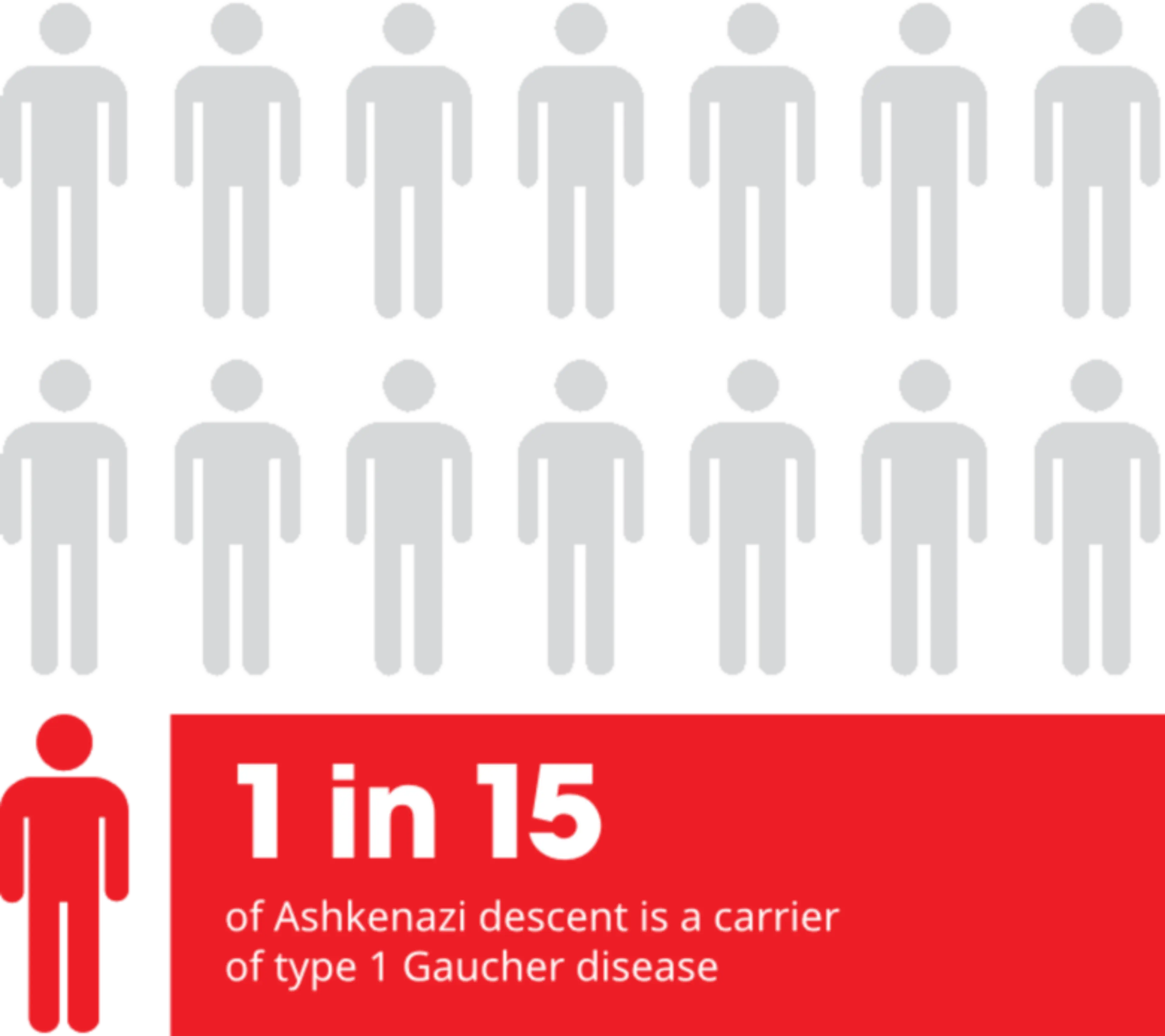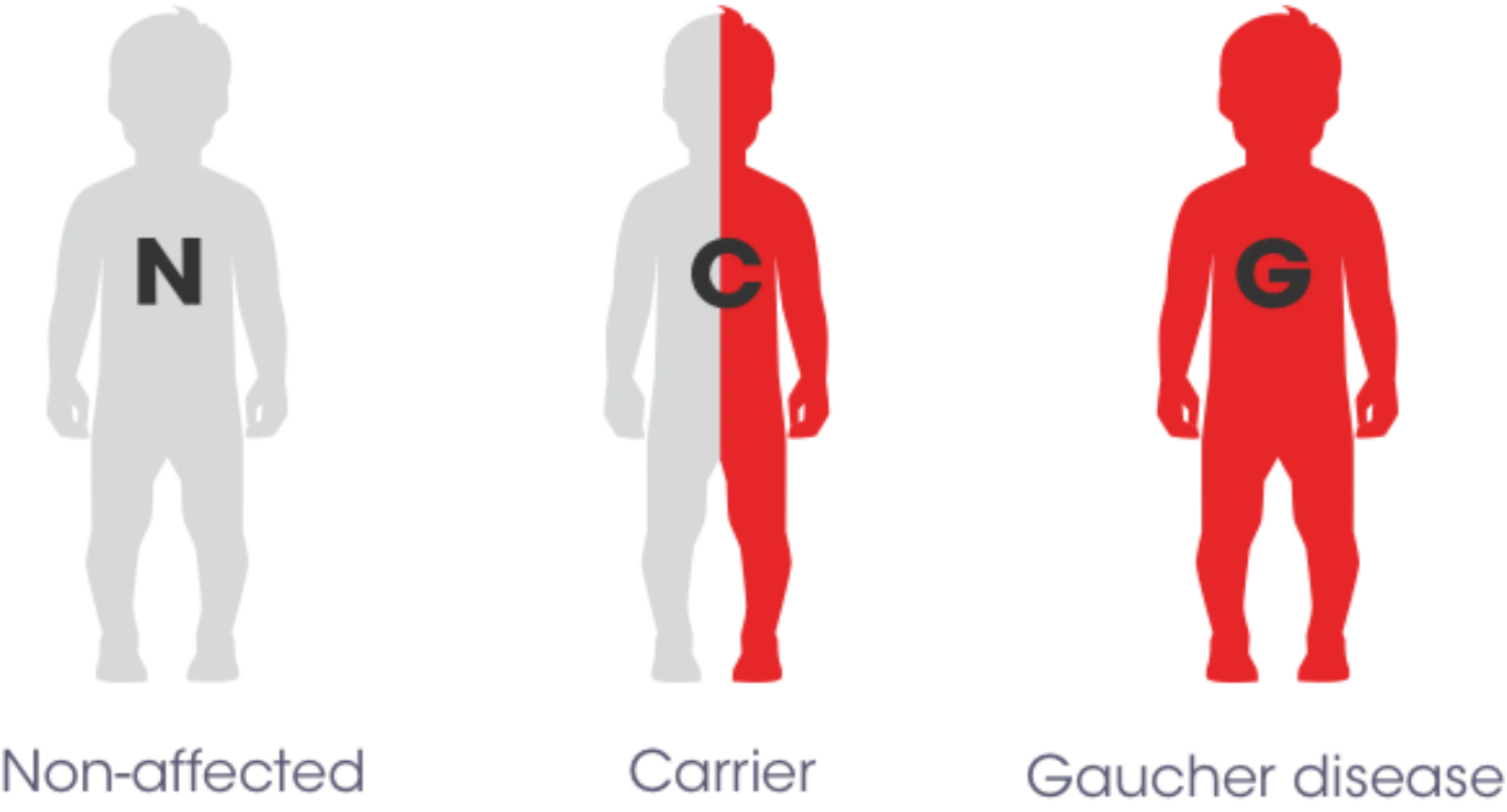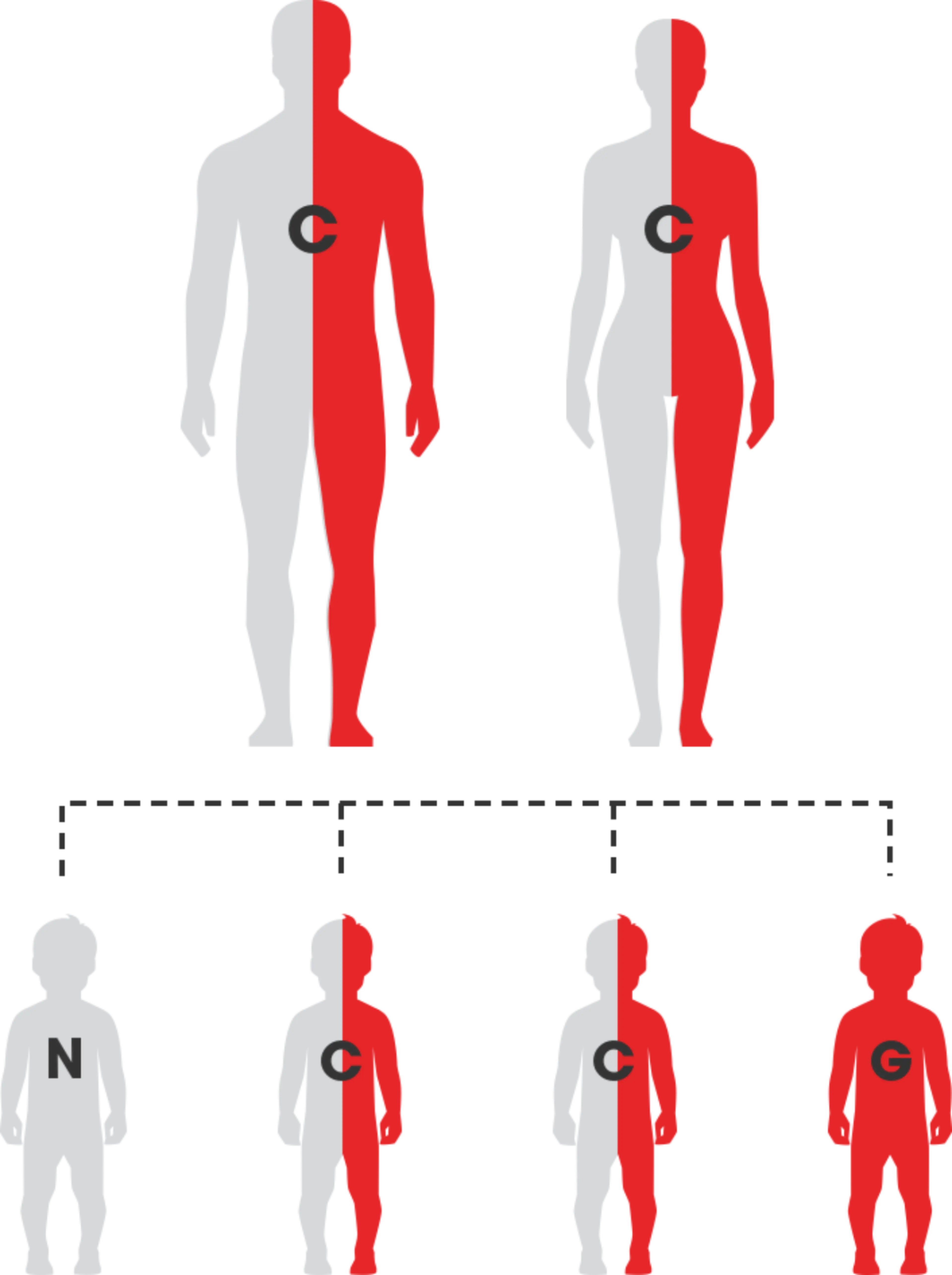- Article
- Source: Campus Sanofi
- 23 Oct 2023
Epidemiology of Gaucher disease

Rare but not so rare
Although considered a rare disease in the general population, the prevalence of Gaucher disease is significantly higher in specific patient groups.1
Think Gaucher disease when considering the following:
-
Patients presenting with splenomegaly and/or thrombocytopenia
-
Patients with family members affected by Gaucher disease
-
Patients of Ashkenazi Jewish descent
Although the disease can affect anyone of any ethnicity, there is a high prevalence of Gaucher disease in certain ethnic backgrounds. Notably those of Ashkenazi Jewish descent have a disease prevalence of approximately 1 in 800.2
Approximately 1 in every 15 people of Ashkenazi descent is a carrier of Type 1 Gaucher disease.1
Therefore it is important to test close family of patients from this background.

As an autosomal recessive disorder, a carrier of Gaucher disease has a 50% chance of having a child which carries the Gaucher gene. If both parents are carriers, there is a 25% chance that the child will be affected with Gaucher disease. If your patient has an immediate relative who has been diagnosed with Gaucher disease, it is important to order a blood test straight away.


References
- Motta I, et al. Eur J of Haematol 2015. 96:352–359.
- Mistry PK, et al. Am J Hematol 2011. 86(1):110–115.
MAT-XU-2201102 (v2.0) Date of preparation: October 2023